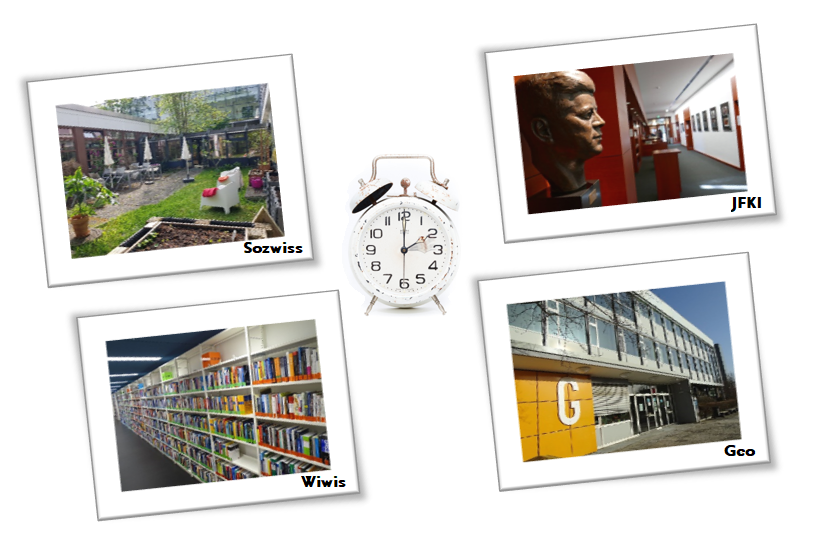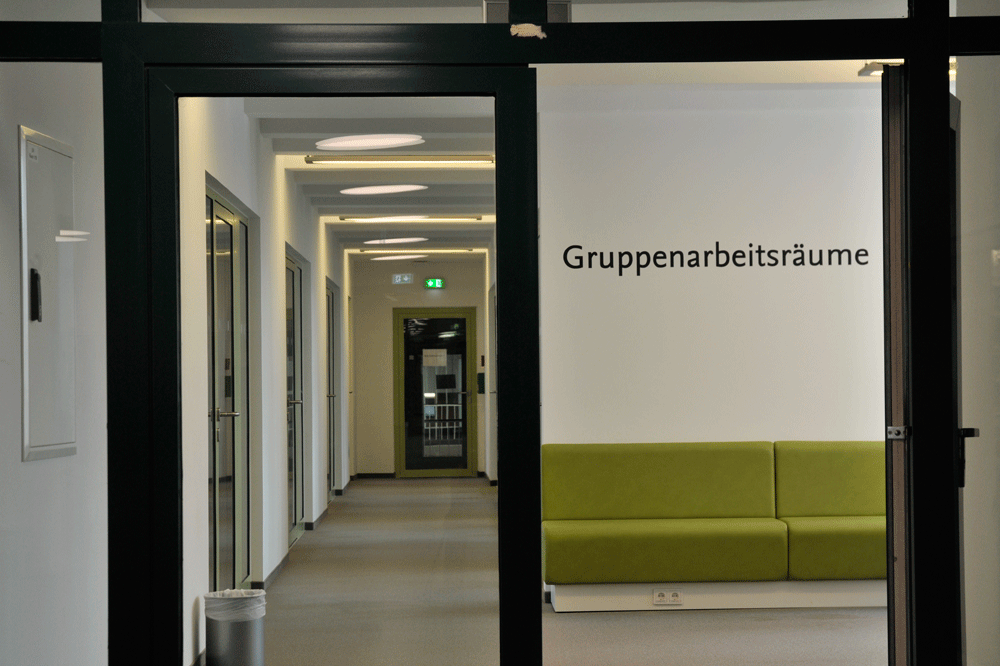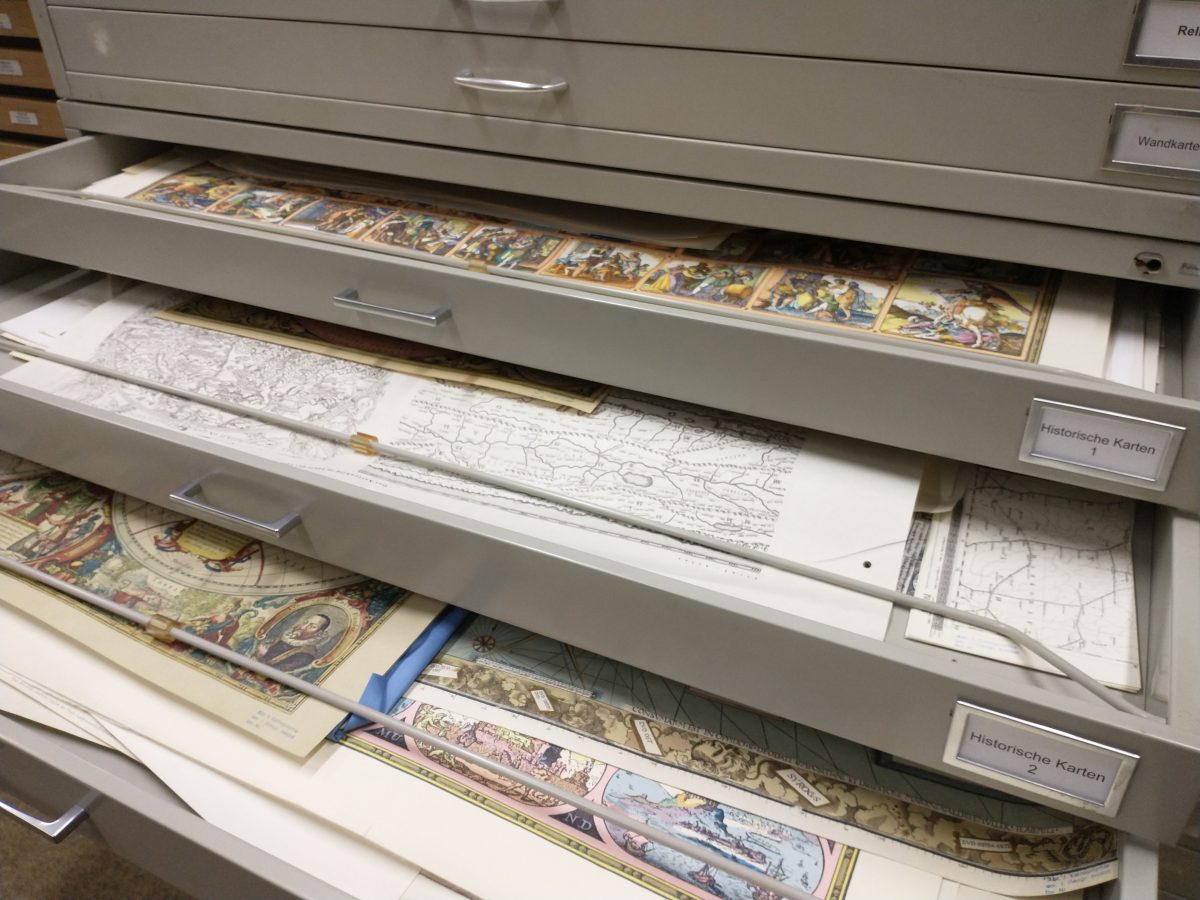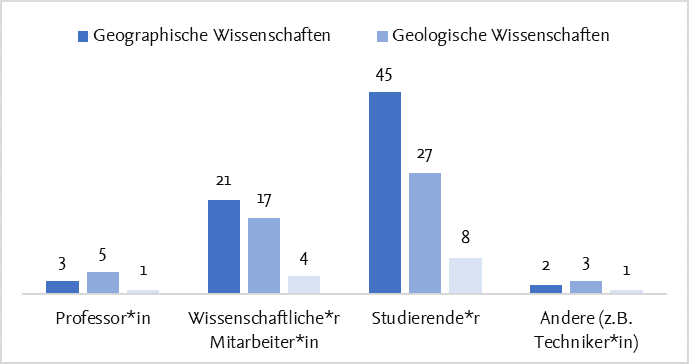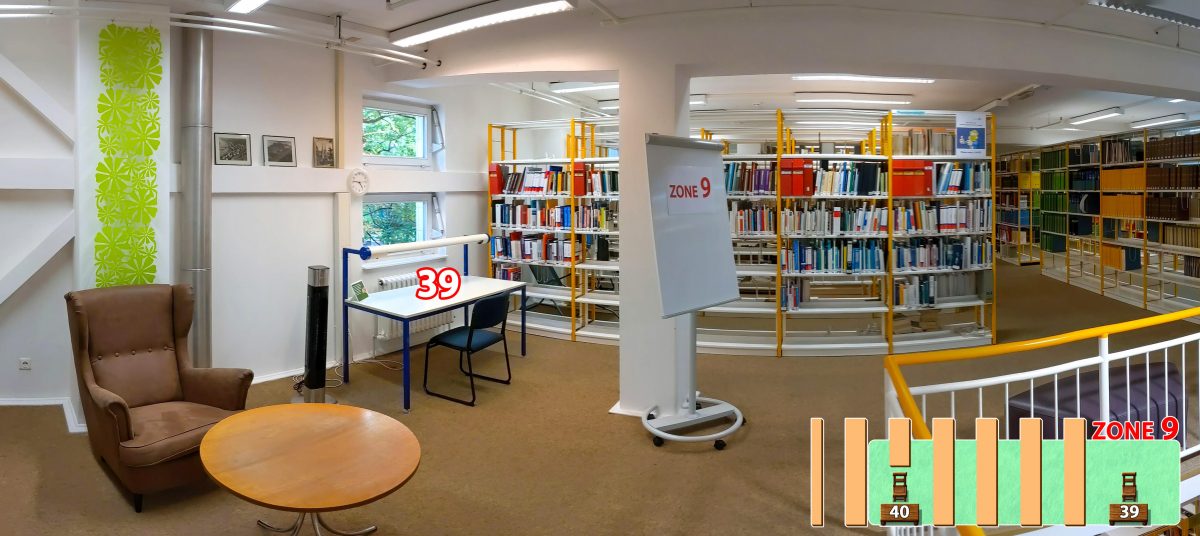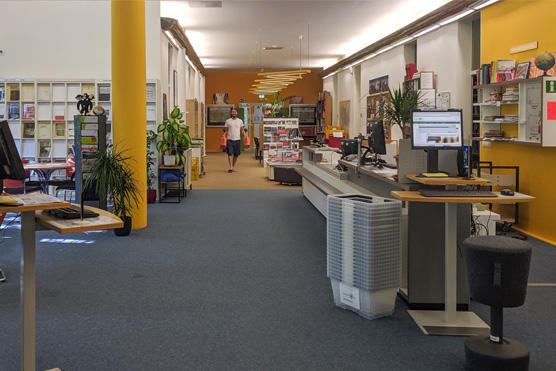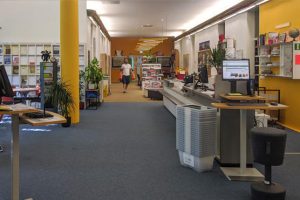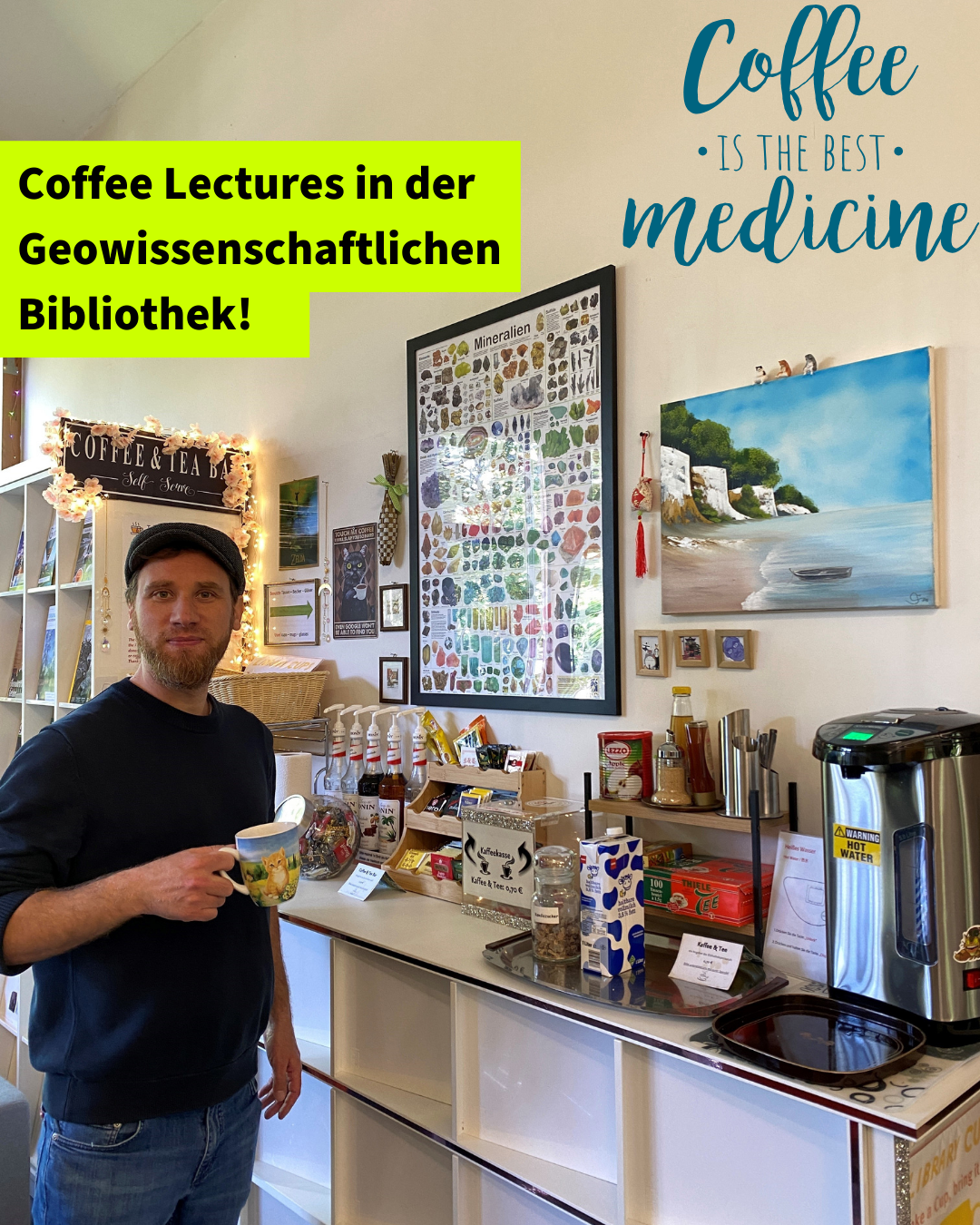
Im Sommersemester 2024 finden in der Geowissenschaftlichen Bibliothek in Lankwitz jeden Donnerstag Coffee Lectures statt. Von 15:15 Uhr bis 15:45 Uhr können Sie gemütlich vor Ort oder online teilnehmen.
Die Teilnahme ist ohne Anmeldung möglich. In der Bibliothek ist Platz für etwa 20 Personen nach dem Prinzip „first come, first served“. Es gibt natürlich kostenlos frischen Kaffee. Die Vorträge werden auf Deutsch oder Englisch gehalten, die Präsentationsfolien auf der Bibliothekswebseite verlinkt. Der Online-Stream wird nicht aufgezeichnet.
Termine und Themen
- 2.5.: 6 Ethical Ways to Use AI in Your Studies
Using AI as a student can put you at risk of academic misconduct—but it doesn’t have to. In this coffee lecture, you’ll learn the basics of ethical AI use in a university context, while also discovering 6 safe and responsible ways to leverage AI tools in your studies. As always: ask your instructor if you’re allowed to use AI for your assignments, and if so, under which conditions! - 16.5.: Publication Charges for Open Access Publishing: What Does Freie Universität Pay for?
When publishing journal articles in Open Access, authors usually face costs. We explain which costs are covered by the Freie Universität and how this works in practice. - 23.5.: Web of Science Basics: Wie finde ich Literatur zu meinem Thema?
In dieser Coffee Lecture stellen wir die beliebte Literaturdatenbank Web of Science vor und zeigen, wie damit wissenschaftliche Literatur zu einem bestimmten Thema effektiv gefunden werden kann. - 30.5.: Eine Karte ist (k)ein Buch: Kartenrecherche 101
Wenn ihr euch schon einmal gefragt habt, wie und wo ihr nach Kartenmaterial suchen könnt, seid ihr in dieser Coffee Lecture genau richtig. Wir präsentieren euch den aktuellen Stand um unsere Kartensammlung und stellen euch außerdem Tipps und Tricks vor, die euch die Kartenrecherche (auch außerhalb der Geowissenschaftlichen Bibliothek) erleichtern können. - 6.6.: Bibliometrics 101: Collecting Data in Web of Science
Are you interested in analyzing research output using bibliometric indicators such as article citation count, h-index and journal impact factor? Then join us in this coffee lecture to understand why Web of Science is one of the leading sources for bibliometric data – and learn how to use it effectively yourself! - 13.6.: Research Data Management Services at FU Berlin
Delve into the world of research data management over a cup of coffee and discover how our university is supporting research practices through services tailored to your needs. - 20.6.: NFDI4Earth’s Impact on Earth Sciences Data Management
Learn about recent initiatives of the NFDI4Earth to support the management of your research data. The NFDI Earth System Sciences consortium (NFDI4Earth) started work in the autumn of 2021 and aims to standardise existing and future strategies and services for research data management in the Earth Sciences. - 27.6.: Wie organisiere ich mein Wissen? Literaturverwaltung
Anhand der freien Software Zotero erfährst du, wozu du Literaturverwaltung brauchen kannst und wie das dein Studium, die Forschung (und dein Leben) erleichtert. - 4.7.: „Ownership“ of Research Data
The generation of research data is usually associated with great financial, personnel and time expenditure. But who actually „owns“ this research data? Who can decide to publish data and which rules hold when a researcher leaves FU to work in another university? We explore the complexity of this topic, touching on copyright, legal positions arising from the employment status, and good scientific practice. - 11.7.: FID GEO: Services for Openness in Earth Sciences
The FID GEO, the Specialised Information Service for Geosciences, offers comprehensive support and consultancy in Open Science for the Earth Sciences. Get to know FID GEO´s free digital map collection, open access publication opportunities, and much more.


